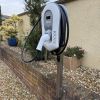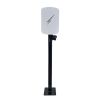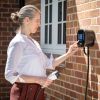Headline
Headline
Share This Article

Lorem ipsum dolor sit amet, consectetur adipiscing elit, sed do eiusmod tempor incididunt ut labore et dolore magna aliqua. Ut enim ad minim veniam, quis nostrud exercitation ullamco laboris nisi ut aliquip ex ea commodo consequat.
Title
Lorem ipsum dolor sit amet, consectetur adipiscing elit, sed do eiusmod tempor incididunt ut labore et dolore magna aliqua. Ut enim ad minim veniam, quis nostrud exercitation ullamco laboris nisi ut aliquip ex ea commodo consequat.
Related Articles

The Ultimate EV Charger Showdown – Which One Reigns Supreme in 2025?
6 November 2025

Indra Smart Pro 7.4kW Home EV Charger
3 November 2025

What It Really Costs to Charge an EV
25 September 2025

Zappi Wall Bracket – A Sleek Upgrade for Smarter Charging
15 September 2025

Value Hypervolt Home 3 Pro Rectangular Post – Strength Meets Style in Commercial EV Charging
15 September 2025

Charge Into the Future – Why the Ohme Home Pro Is a Game-Changer for Your EV Journey
15 September 2025

Monetary Incentives for Off-Peak EV Charging: Understanding Smart Tariff Benefits
14 August 2025

Expansion of Solar-Powered Fast-Charging Hubs Along UK Motorways
14 August 2025

Integration of EV Chargers into the National Grid: Implications for Homeowners and Fleet Management
14 August 2025

UK to Implement Ban on Non-Smart EV Chargers Starting 2025: Implications for Installers
14 August 2025